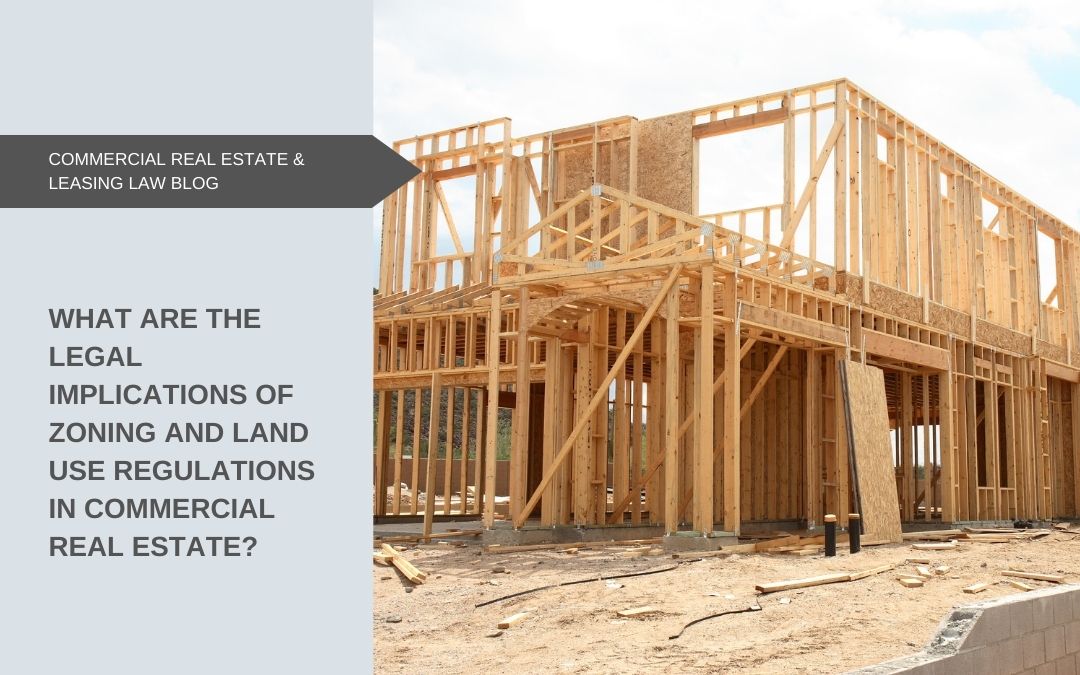Zoning and land use regulations play a crucial role in commercial real estate, and failure to comply with these regulations can have significant legal implications. Here are some key legal implications of zoning and land use regulations in commercial real estate:
Permitted Uses and Restrictions
Zoning regulations specify the permitted uses for different areas or zones within a jurisdiction. Commercial properties must adhere to these permitted uses, which outline the types of businesses or activities that are allowed. Engaging in a use that is not permitted by zoning regulations can result in legal consequences, such as fines, penalties, or even an order to cease the illegal use.
Conditional Use Permits
In some cases, commercial properties may require a conditional use permit (CUP) to engage in certain activities or uses that are not typically permitted by the zoning regulations. Obtaining a CUP involves a formal application process, public hearings, and meeting specific criteria outlined by local authorities. Failure to obtain a required CUP can result in legal action, fines, or forced closure of the business.
Variances and Special Exceptions
Property owners can seek variances or special exceptions from zoning regulations if they believe the regulations impose undue hardship or if there are unique circumstances justifying a deviation. These requests require formal applications, public hearings, and approval from local zoning boards or authorities. Failure to secure a necessary variance or special exception may result in legal challenges and potential penalties for non-compliance.
Building Codes and Safety Regulations
Zoning and land use regulations often incorporate building codes and safety regulations that govern the construction, renovation, and use of commercial properties. These codes ensure that properties meet certain standards for safety, accessibility, structural integrity, and fire prevention. Failure to comply with building codes and safety regulations can lead to legal consequences, including fines, orders to make necessary modifications, or even closure of the property.
Land Development and Subdivision Regulations
Land development and subdivision regulations dictate how land can be developed, subdivided, and used for commercial purposes. These regulations cover aspects such as lot size, setbacks, parking requirements, signage restrictions, landscaping, and other site development considerations. Non-compliance with these regulations can result in legal action, fines, or orders to rectify any violations.
Environmental Regulations
Environmental regulations, including those related to hazardous materials, pollution, and protected lands, can have legal implications for commercial real estate. Failure to comply with environmental regulations can lead to substantial penalties, lawsuits, and remediation costs.
Legal Challenges and Disputes
Zoning and land use regulations can be subject to legal challenges and disputes. Property owners, neighbors, or advocacy groups may challenge zoning decisions, variances, or the interpretation of regulations through legal proceedings. These challenges can lead to protracted legal battles, delays in development or use, and potential financial liabilities.
It is crucial for commercial property owners, developers, and tenants to understand and comply with applicable zoning and land use regulations. Consulting with local planning departments, zoning attorneys, or real estate professionals knowledgeable in local regulations can provide guidance and help navigate the legal complexities of commercial real estate development and use.

